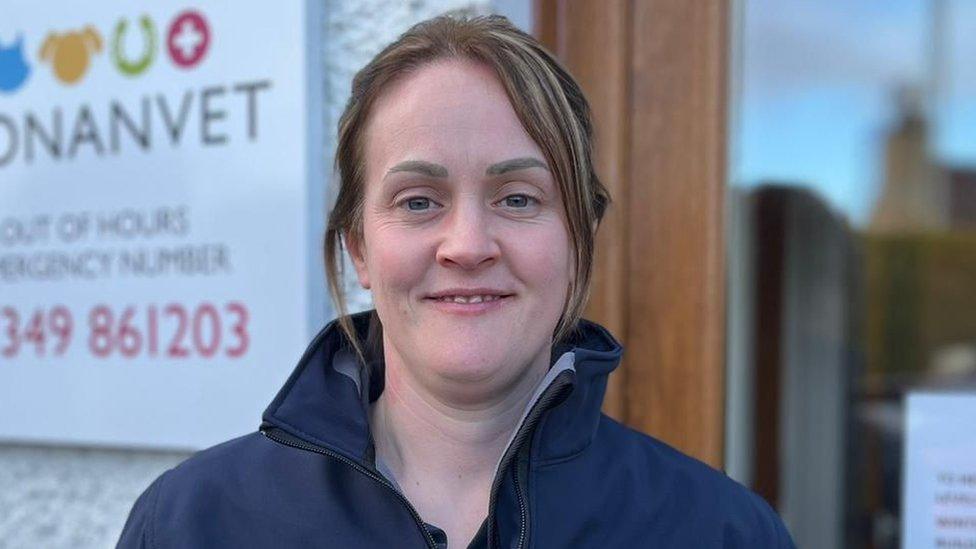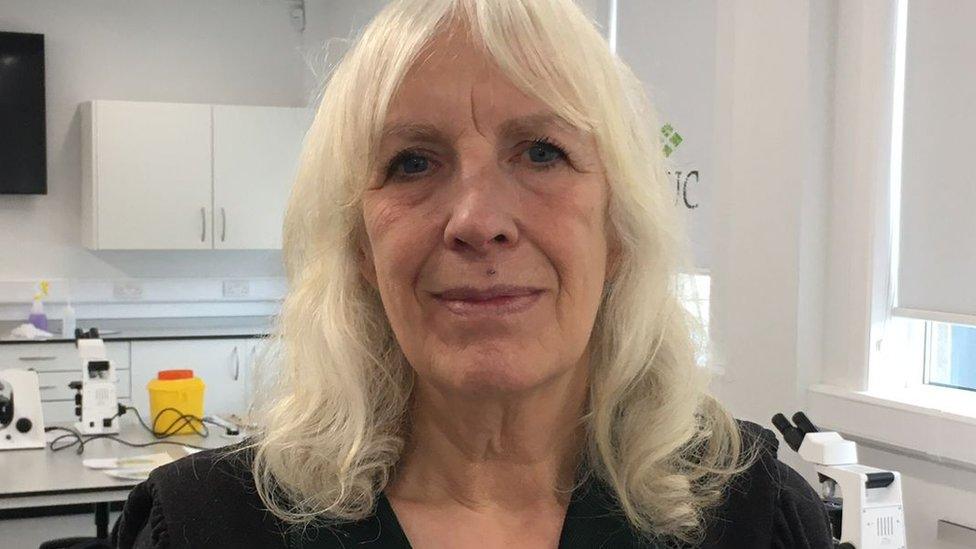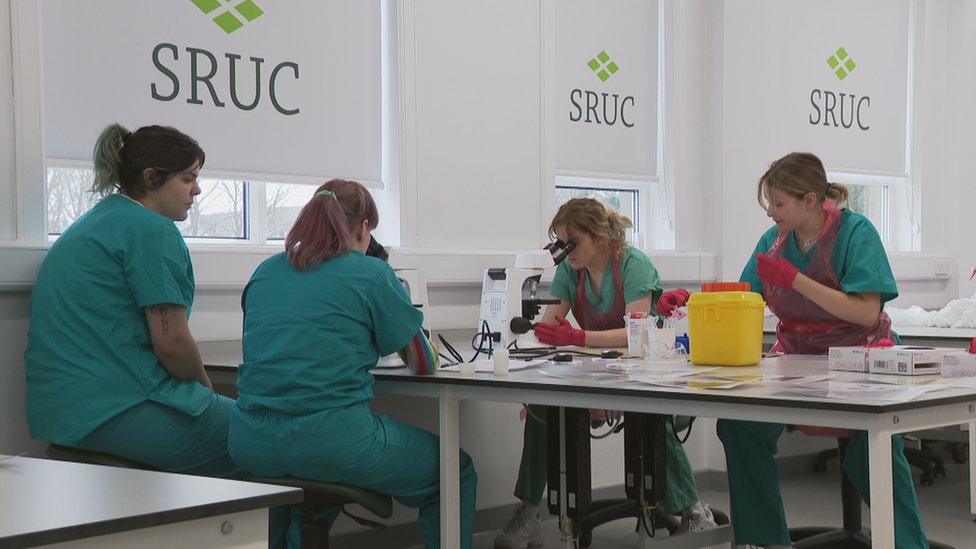How does Scotland tackle its vet shortage?
- Published

Mary-Jo Grant is a vet living on the Black Isle
Changes need to be made in the veterinary sector in Scotland to avert a workforce crisis, according to the Royal College of Veterinary Surgeons.
It has published an action plan to try to tackle the problem.
Vets say huge increases in pet ownership during the Covid pandemic, the impact of Brexit on the workforce and the long-standing problems of a sector known to have a poor work-life balance have all contributed to the crisis.
"We're not the kind of people who will do the 9 to 5," says Mary-Jo Grant, a vet living on the Black Isle.
"We will stay back. We will burn out."
Mary-Jo says her chosen profession is rewarding but it is hard.
She says the greater demand for vets from people getting dogs and cats during the pandemic came at the same time as Brexit made it more difficult for EU vets to work in the UK.
"There's a greater demand but there are fewer vets to do the work," she says.
Mary-Jo says the expectation on vets has changed - with one client calling her in the early hours of the morning because of a tick on a cat's ear.
And vets have also seen an increase in verbal abuse, she says.
Mary-Jo says her husband, who is a farmer, helps her to manage the demands of the job and childcare but she is lucky to have that flexibility.
The Royal College of Veterinary Surgeons has released an action plan which acknowledges that a lack of flexible working hours can lead to people leaving the profession.
Mary-Jo agrees retention of staff within her practice is a big issue.
"Time has moved on, the profession does need to move on," she says.
"Nobody wants to work 60-hour weeks any more. With that comes flexible working and all that comes with it."

Prof Caroline Argo says the college is looking to recruit a different type of graduate
Scotland currently has two vet schools - in Glasgow and Edinburgh - but the Dean of Scotland's Rural College (SRUC) is looking to shake things up, opening up the nation's first vet school for 150 years, in Aberdeen, later this year.
Prof Caroline Argo says the college is looking to recruit a different type of graduate.
She says: "There is a lot of evidence from America and Australia that if you recruit from rural communities the chances are those people will go back into those communities and stay there career-long."
The aim of the new vet school is to get students into practice early so they can experience life as a working vet earlier in their studies.
They also want to move away from all vets being straight-A students, taking what Prof Argo calls a "holistic approach".
She says part of the school's mission is to source students from Scotland's highlands, islands and rural areas.
Veterinary nurses
Another proposed solution in the Royal College's action plan is to widen the role of veterinary nurses.
The plan states that levels of dissatisfaction within veterinary nursing is high, with issues around pay, work-life balance and not feeling valued.
Second-year student Kelsea Taylor already works in practice so she has an idea of the demands of the profession.
She says: "There's a lot of pressure on the veterinary industry just now, especially after the whole Covid situation, a lot more people have pets so there's definitely a big strain on the industry.
"I think nurses have been stepping up to take the strain off of vets - so it's been really busy."

The college is training more veterinary nurses
Ailsa Wallace, another veterinary nursing student, has also spent time in practice.
She says: "I know after working in practice that there is quite a high demand and it is going to be quite stressful.
"But there are a lot of practices which require nurses. We need nurses to run the practice in emergency out-of-hours. It's important for nurses to triage and dilute down what the vets see first."
The value of veterinary nurses is echoed by Mary-Jo on the Black Isle.
She says they had previously been seen as kennel staff but are now "more empowered" and have their own professional registration.
"They do a lot of work and they are the backbone of practices," Mary-Jo says.
"Our nurses are amazing, we couldn't go without our nurses."
Prof Argo says there was no doubt something needs to be done to plug the vacancy gap but she knows the action plan is only part of the solution.
"This isn't a silver bullet," she says.
"This isn't going to solve Scotland's veterinary issues in a oner but it's a major stepping stone to achieving that.
"I think we will make an impact but there's a lot of other things as a profession we need to get right as well."